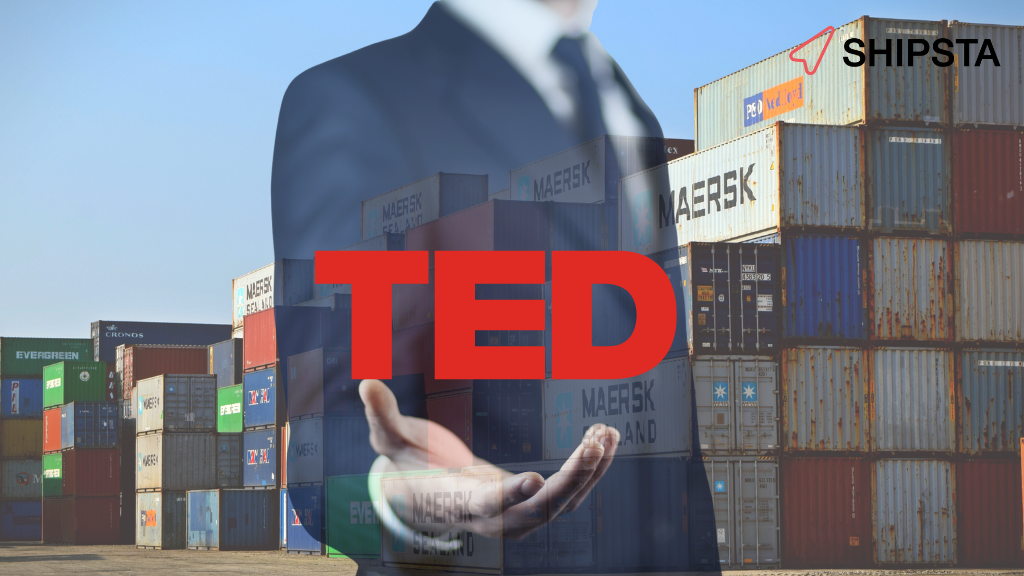The 2021 United Nations Climate Change Conference (better known as COP26) kicked off in Glasgow last Friday.
This is the biggest meeting since the 2015 Climate Change Conference in Paris, where 196 countries agreed to work towards reducing greenhouse gasses in the Paris Agreement.
This year’s meeting in Glasgow is expected to set much tougher measures to reduce emissions for both governments and industries compared to the Paris Agreement. Alok Sharma, the UK cabinet minister in charge of hosting the summit stated, “It was brilliant what they did in Paris, it was a framework agreement, [however] a lot of the detailed rules were left for the future.”
With tougher measures expected, what will this mean for the transport and shipping industry? Let’s go through the main things we can expect from the conference.
Shipping will face tougher sustainability targets
In September 2021, a joint coalition made up of the Global Maritime Forum, the World Economic Forum and Friends of the Ocean, released a call to action urging world leaders to align shipping with the Paris Agreement temperature goal at the Glasgow COP26 summit.
The Call to Action, supported by more than 200 industry leaders across the entire maritime value chain, calls on governments to:
- Commit to decarbonising international shipping by 2050
- Support industrial scale zero emission shipping projects though national action
- Deliver policy measures that will make zero emission shipping the default choice by 2030.
It’s likely we’ll see policies similar to the EU’s ‘European Trading System’ (ETS), where polluters have to buy permits from the EU when they pollute or face paying a fine. Under the EU’s ‘Fit for 55’ regulations set in July 2021, shipping will become subject to this system from 2023. We can expect COP23 to pressure governments outside the EU to implement similar regulations on shipping in their country too.
We can expect a financial boost to CO2 neutral tech
To go carbon free by 2050, the transport industry needs investment into sustainable fuel technology. Shipping in particular needs to rapidly develop an alternative to bunker fuel which is available in bulk.
To develop this urgently needed tech, International Chamber of Shipping (ICS) have called for levies imposed on CO2 emissions to help fund research into new green tech. For example, any money generated from policies like the ETS would be reinvested into research for sustainable fuels and transport technology.
They proposed a $5billion fund which would support carbon-free maritime R&D projects that, like the ETS, would be financed by shipowners through a levy that would be put in place in 2023.
Air transport will come under fire
The aviation industry has long been scrutinised by environmental groups and governments for their CO2 emissions. And as air transport produces the most CO2 per tonne-kilometre, it’s no surprise that it will come under fire at this year’s COP26 summit. In fact, the organisers of the summit have pledged that no air-freight food will be on the menu at COP26.
Currently, the aviation industry is committed to the UN’s ‘CORSIA’ scheme, which stands for Carbon Offsetting and Reduction Scheme for International Aviation. Under this scheme, airlines have to buy emissions offsets to compensate for any increase in their own emissions or use lower carbon fuels. However, CORSIA has come under a lot of scrutiny for not being backed by science and, even when it was first announced, already being out of date.
ICAO has also been criticised for its “aspirational goal” of 2% annual fuel efficiency improvement through 2050 being far too low.
Antonio Guterres, UN Secretary General, scrutinised both sea and air transport at the Global Sustainable Transport Conference in October 2021. He stated, “Adopting a new set of more ambitious and credible targets that are truly consistent with the goals of the Paris agreement must be an urgent priority for both… [the International Civil Aviation Organization and International Maritime Organisation] in the months and years ahead.”
He urged Airlines to start using sustainable aviation fuels immediately and set a goal to cut carbon emissions per passenger by 65% by 2050.
We’re likely to see government put pressure on aviation to set these tougher climate goals and bring international aviation in line with the Paris targets.
Conclusion
COP26 will push the shipping industry committing to tougher sustainability targets. However, it's likely that governments would have set similar targets in the upcoming years as a results of the increasing environmental disasters we're seeing, even without the summit.
Although the shipping industry would have likely seen similar reforms without the summit - it will have pressured governments to implement these policies sooner that they might have otherwise. Plus, the united international approach of the summit creates accountability, so failing to meet goals is more difficult to brush under the rug.
One of the best outcomes from the summit for the shipping and freight industry would be higher investment into CO2 neutral fuel technology. It's indisputable that new green tech is the solution to hit CO2 neutral by 2050, and right now eco-fuel isn't where it needs to be. More efficient and readily available eco-transport will make freight procurement professionals' jobs a lot easier as they'll have more cheaper options available to them - so hitting sustainability targets will be a more realistic prospects.
If you're trying to reduce your shipping carbon footprint, our sustainable procurement management platform ShipstaPLANET can help. You can measure your CO2 output, set a baseline for your sustainability strategy and prevent emissions at the point of procurement. Click the button below to learn more about procuring green.
About SHIPSTA
SHIPSTA is a digital platform that connects shippers and carriers to ensure a frictionless procurement process for spot and contract buying, entirely online. It automates complex tasks, provides unrivalled visibility and supports fast data-driven decision making.
Designed and built by experts in logistics procurement, SHIPSTA is bringing transparency, automation and efficiency to the global logistics industry. It is used by some of the world’s largest companies to respond to market volatility, control freight costs and manage risk. The company was founded in 2015 and is based in Mertert, Luxembourg and Hamburg, Germany.



